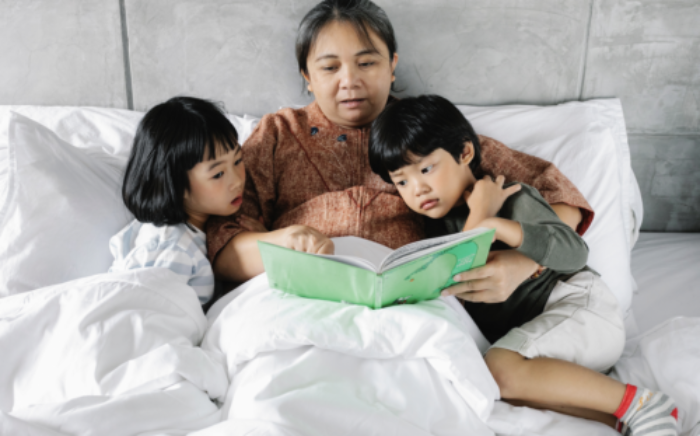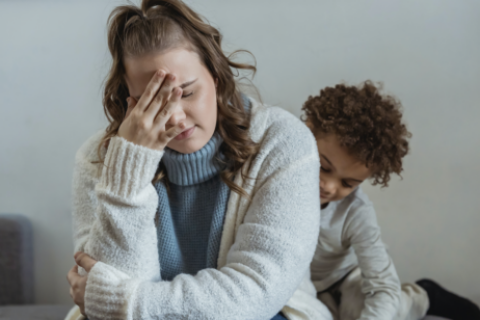The decision to seek therapy can be an intimidating one. Psychology Today, for example, lists over 60 types of therapies for toddlers through elders! A parent in need of help for their child or family may question Where do I start? What do all these treatment categories mean? Which form of therapy is appropriate for my child and for my family?
The answer? It depends. It depends on your child’s problem area, their age, as well as their ability and willingness to engage in treatment. It similarly depends on your family’s needs and parents’ ability to engage in treatment. For more clarity regarding what could best fit your family, consider the following.
What are your primary concerns?
Disruptive Behavior
If you are seeking help to address your child’s challenging behavior (e.g., ADHD, difficulty following directions, tantrums, impulsivity, anger management), typically a family-oriented treatment is recommended. Such treatment heavily involves parents, but it can also include the child. You might ask, Why do I need to be in therapy when my child is the one with behavior problems? Similar to special education teachers, parents of special needs children benefit from specialized training in highly specific skills that challenging kiddos are more responsive to.
For children up to 11 years of age, we might recommend a form of Parent-Child Interaction Therapy (PCIT). This would involve weekly sessions with caregivers and the child of concern whereby clinicians provide coaching as parents practice using specific relationship enhancement and disciplinary skills live with their child. This treatment can be conducted in our office or via telehealth at home.
-
- 12 to 24-month-old children: PCIT with Toddlers (PCIT-T)
- 2 to 7-year-old children: Standard PCIT
- 7 to 11-year-old children: PCIT for Older Children
For children 12 years of age and up, we might recommend behavioral parent training. One option is Kazdin’s Parent Management Training (PMT). This would involve weekly sessions with parents alone whereby clinicians provide training and consultation in the use of specific skills to address challenging behaviors. Parents report back each week on their experiences using the skills, while therapists tweak parents’ implementation of skills as needed.
If behavioral concerns remain following a family’s graduation from above described treatment approaches, we might then recommend individual Cognitive Behavior Therapy (CBT) for your child. Such an approach would mostly involve your child (with occasional parent or family sessions) working on specific skills to develop insight as to their thoughts, feelings, and behaviors and establish coping skills to help them be successful in managing their behavior or impulses.
Anxious Behavior
If you are seeking help to address your child’s anxiety (e.g., difficulty separating from loved ones, engaging in social interactions, managing their worries, coping with distressing obsessions and compulsions), typically more individual treatment is recommended. However, certain situations call for significant parent involvement or a parent-only approach.
For children 7 years of age and up, we often recommend individual CBT. This ordinarily involves weekly sessions with your child to help them recognize and understand their reactions to anxiety, develop plans for coping, and practice facing feared situations via exposures. There is usually some parent and/or family work involved with this approach so parents have the skills to support their child in facing anxiety provoking scenarios at home and in their community.
For children under the age of 7, we might recommend a combination of family and individual behavioral therapy. Since children this age typically are not yet able to evaluate their thoughts, feelings, and behaviors, they require adult support in practicing facing feared situations. Such treatment would include parent training, parent coaching with child, as well as individual sessions with the child.
Other Areas
There are a number of other reasons parents seek out therapeutic services for their child and family.
Sadness & Depression: Typically, individual CBT is recommended for children 7 years of age and up to help them recognize and understand their emotional reactions as well as develop and practice coping plans to better manage stressors and regulate emotions. Similar to anxiety interventions, treatment for depression may involve some parent and/or family involvement to work on family relationships and/or to provide parents with the skills to support their children when in distress at home or in the community. For children under the age of 7, we might recommend a combination of family and individual work to target above described goals.
Divorce & Family Discord: The type of recommended treatment for family related issues will vary based on the circumstances of the family. If you are observing disruptive, anxious, or depressive behaviors in your child or teen, we might recommend one of the above described interventions. If you are looking for your child to have a space to discuss family stressors, we might recommend individual counseling. Individual counseling could include building and practicing a coping plan to manage stressors in a healthy way. Some may benefit best from family therapy to work on interactions within the family unit. This work would involve weekly sessions with the immediate family (i.e., parents, all children) and might focus on establishing boundaries, increasing flexibility, and/or addressing conflicts that have been swept under the rug. Depending on your family needs, we might also recommend any combination of the services described above.
Trauma & Loss: When children are exposed to trauma or experience a major loss, we might recommend a combination of individual, parent, and family work. Trauma-Focused CBT (TF-CBT) is the recommended treatment for children and youth who have been trauma exposed. TF-CBT is largely comprised of individual sessions with the child, but includes parent-only sessions as well as joint parent-child sessions when caregivers are able to engage.
Unable or unwilling to engage in treatment?
Sometimes our above described roadmap to treatment doesn’t quite match family needs. In those situations, we might need to take an alternative approach to treatment.
For highly anxious or defiant youth unable or unwilling to safely engage in treatment, we might recommend a parent-only approach. One option is Eli Lebowitz’ Supportive Parenting for Anxious Childhood Emotions (SPACE Program) whereby parents alone work with a therapist to shift their responses to their child’s anxiety. The goal of such an approach is to decrease parents’ accommodation to their child’s anxious avoidant behaviors and with time increase their child’s autonomy and emotion regulation in the face of feared stressors.
For parents and caregivers who are unable to commit to weekly treatment, we might then consider individual treatment options. However, as alluded above, we are strong proponents of parent involvement in treatment regardless of the problem area. We believe that parents can be the agents of change in their child’s life and, therefore, will work with families to find a way to optimize parent and caregiver involvement in treatment. For example, if one parent is unavailable to engage in weekly PCIT sessions, we will work weekly with the primary caregiver who is available and incorporate the less available parent whenever possible, whether that be in-person, via telehealth, or by other means.
Regardless of your child’s age, presenting problems, or family situation, parents and caregivers shouldn’t be alone in making this decision. It is our job as clinicians to review your treatment options, the pros and cons of each, and our clinical recommendation based on the above described factors. In order for clinicians to find the best treatment fit for your family, it’s important that we understand your perspective. So please ask questions and share any concerns you may have about the recommended treatment plan or intervention. If you as the parent are not on board with what we propose, we will work with you to find a plan that best suits your family’s needs.










